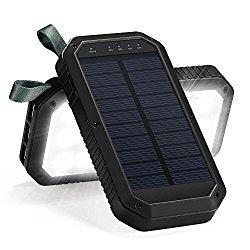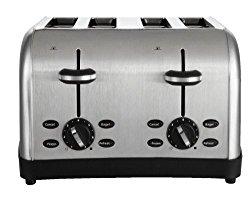Hey millennials, glad that those in your generation, who came home after college and stayed another ten years, are finally getting their own place. Sure, Mom and Dad are footing the down-payment, but at least you’re finally starting to venture out on your own like your parents probably did when they were 18 or maybe 21. I’m sure that plenty of you also moved out and got a modest apartment when you graduated college or high school like your parents did – it is unfair to stereotype an entire generation – but there are more millennials living at home at age 28 than there were in any of the past generations, at least since about 1950. There are also a lot of 30-somethings who still have their parents paying their phone bills or helping with other expenses, even when they are adult children living mainly on their own.
Many of us in GenX were worried about this development of delayed maturity. The hashtag, #adulting, is truly assinine. Note that Jack Daniels started his brewery at age 14, so it is possible to become self-sufficient and even do some pretty remarkable things way before you turn 25. We wondered what would happen when your parent’s generation started to retire and people were needed to do all of the important jobs that they had done. I’m sure your grandparents were also worried about who was going to pay for their Social Security if no one was working. Also, what would happen if your generation never grew up and moved out before your parents retired or died and were no longer able to take care of you.

But this morning I realized that we were worrying about the wrong people. I’m sure that while 35 is the new 20, eventually those student loans will be paid off and you’ll be working your way up the corporate ladder. I know that many of you are just waiting for your parent’s and grandparent’s generation to retire and get out-of-the-way so that you can advance. I’ve also got to believe things like having kids will make you want to get your own space and a refrigerator on which to hang artworks from your elementary schoolers.
The real issue is your parent’s generation. They don’t have anywhere near enough money to continue to live on their own all the way through a 30 or 40-year retirement that the are expecting to have. To generate a $50,000 per-year income, which is probably about what it would take for them to continue to live in their home and continue to live about how they are now, they will need to save up about $1M by the time they retire. Really they should have about $2M since there are also medical bills and a lot of retirees want to do some traveling when they retire. The trouble is that the average person approaching retirement has about $135,000 saved up. And that is the average, which includes some people who have several million saved tipping the scales. There are a lot of people who have $50,000, or $20,000, or $2,000 saved beyond their home.

In the past, many in their situation would have had the option of selling their home and moving somewhere cheaper. If they were to move to a small apartment in a safe but unspectacular neighborhood, and not a condo on the beach or in a high-rise in downtown, that would help them get maybe a decade or more before they ran out of money. The issue is that a lot of them still don’t own their home. They refinanced their mortgage and took out money to put you through college, or upgrade the kitchen, or pay off your student loans or credit card bills. Many people bought bigger homes in their late forties or fifties and started all over again with a 30-year mortgage. That means their home won’t be paid off until they’re 80, and they’ll only have maybe 20-30% equity when they hit retirement age since you pay mostly interest at the beginning of a loan.
So what happened with your parent’s generation that didn’t with your grandparent’s? The issue is that your grandparents had a pension plan where their employer put money away for them and paid them less in salary. Because they had a lower salary, they had smaller homes, took fewer vacations and cheaper vacations, and cook at home most meals. Your grandmother is probably a much better cook than your mom, and that is because she has had 30 years of practice. She didn’t do take-out unless it was a casserole she took to a church potluck. Your grandparents also probably didn’t have two cars, the expense of two sets of work clothes, the daily lattes, and the cost of childcare. They also had college tuition costs of about $3,000 per year in today’s dollars since they could not afford any more than that so universities kept frills to the minimum and didn’t ask for high tuitions. In exchange for this more meager living, they had a pension plan waiting for them at retirement.
Your parents instead got higher salaries with the expectation that they would then save up for their own retirement. This was actually a better deal since the returns on pension plan investments aren’t as great as returns one can get investing for oneself since the pension plan manager needs to be conservative (and get lower returns) all of the time to ensure there is enough money to keep the payments for current retirees flowing, but an individual can be aggressive during the first 30 years and then shift to a more conservative mix near the end. The trouble is that your parents used the extra salary to buy bigger houses, take more lavish vacations, pay high college tuition costs and living costs for their college students, and eat every meal out. Retirement was always something that they would worry about later when they didn’t have this need or that crisis to take care of.

With $130,000 in savings, living in a standard home even without a mortgage, they’ll probably be able to eek out 5-7 years before they’ll run out of money. This is assuming that they don’t have any major medical expenses, don’t travel the world, and that the stock market cooperates to a good extent. A bear market, a mortgage payment, or a big medical bill could cause them to run out much sooner. And what will happen then?
The most likely thing is for them to give you a call. At that point you’ll be over at their place, having a big yard sale to sell off all of the stuff they’ve collected over the years (some of it will end up at your house), then they’ll be moving into that home office, guest bedroom, or workout studio you’ve made at your home. Maybe you’ll still be living at your parents home, so you’ll just take over the mortgage payments and the grocery bills.

It will be nice to have them around to help out with watching the kids, assuming they’re interested in that. But the house will suddenly feel a lot smaller, and there will be the inevitable power struggles and in-law struggles that come with multi-generation households. Meals out will become a lot more expensive, as will vacation since you’ll be getting extra hotel rooms and tickets. This is not a terrible arrangement, with many advantages such as your children getting to really know their grandparents, the ability to share some of the household chores (assuming your parents don’t decide it is your turn to take care of everything), and an easy transition when they become old enough to need a lot more help with things. It is actually very common in Asian countries, especially in areas where housing prices are astronomical, and was the standard in the US for many families when most people were farmers.
Still, you had better start thinking in terms of how you will handle having a full household, both in managing expenses and living arrangements. In the next post, I’ll go into some steps to take to get ready, starting with having a frank conversation with your parents about their finances.
New to investing? Want to learn how to use investing to supercharge your road to financial freedom? Get the book: SmallIvy Book of Investing: Book1: Investing to Grow Wealthy
Have a question? Please leave it in a comment. Follow me on Twitter to get news about new articles and find out what I’m investing in. @SmallIvy_SI
Disclaimer: This blog is not meant to give financial planning or tax advice. It gives general information on investment strategy, picking stocks, and generally managing money to build wealth. It is not a solicitation to buy or sell stocks or any security. Financial planning advice should be sought from a certified financial planner, which the author is not. Tax advice should be sought from a CPA. All investments involve risk and the reader as urged to consider risks carefully and seek the advice of experts if needed before investing.
